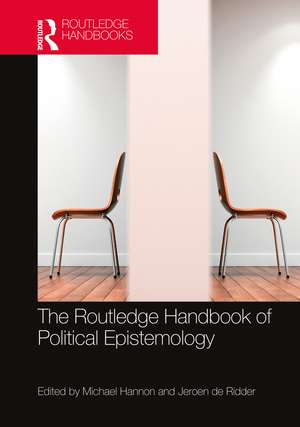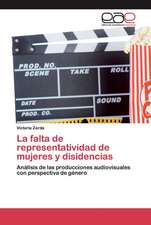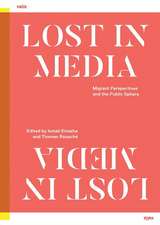The Routledge Handbook of Political Epistemology: Routledge Handbooks in Philosophy
Editat de Michael Hannon, Jeroen de Ridderen Limba Engleză Paperback – 31 mai 2023
The Routledge Handbook of Political Epistemology is an outstanding reference source to this exciting field, and the first collection of its kind. Comprising 41 chapters by an international team of contributors, it is divided into seven parts:
- Politics and truth: historical and contemporary perspectives
- Political disagreement and polarization
- Fake news, propaganda, and misinformation
- Ignorance and irrationality in politics
- Epistemic virtues and vices in politics
- Democracy and epistemology
- Trust, expertise, and doubt.
The Routledge Handbook of Political Epistemology is essential reading for those studying political philosophy, applied and social epistemology, and politics. It is also a valuable resource for those in related disciplines such as international relations, law, political psychology, political science, communication studies, and journalism.
| Toate formatele și edițiile | Preț | Express |
|---|---|---|
| Paperback (1) | 341.55 lei 43-57 zile | |
| Taylor & Francis – 31 mai 2023 | 341.55 lei 43-57 zile | |
| Hardback (1) | 1567.89 lei 43-57 zile | |
| Taylor & Francis – 22 apr 2021 | 1567.89 lei 43-57 zile |
Din seria Routledge Handbooks in Philosophy
-
 Preț: 346.27 lei
Preț: 346.27 lei -
 Preț: 366.85 lei
Preț: 366.85 lei -
 Preț: 345.63 lei
Preț: 345.63 lei - 9%
 Preț: 1489.80 lei
Preț: 1489.80 lei -
 Preț: 344.01 lei
Preț: 344.01 lei - 9%
 Preț: 1487.37 lei
Preț: 1487.37 lei -
 Preț: 341.55 lei
Preț: 341.55 lei -
 Preț: 348.50 lei
Preț: 348.50 lei -
 Preț: 404.99 lei
Preț: 404.99 lei -
 Preț: 346.44 lei
Preț: 346.44 lei -
 Preț: 359.03 lei
Preț: 359.03 lei -
 Preț: 359.28 lei
Preț: 359.28 lei -
 Preț: 366.16 lei
Preț: 366.16 lei -
 Preț: 349.21 lei
Preț: 349.21 lei -
 Preț: 438.66 lei
Preț: 438.66 lei -
 Preț: 346.82 lei
Preț: 346.82 lei -
 Preț: 343.72 lei
Preț: 343.72 lei -
 Preț: 341.55 lei
Preț: 341.55 lei -
 Preț: 345.67 lei
Preț: 345.67 lei -
 Preț: 330.04 lei
Preț: 330.04 lei -
 Preț: 341.55 lei
Preț: 341.55 lei -
 Preț: 406.42 lei
Preț: 406.42 lei -
 Preț: 346.58 lei
Preț: 346.58 lei -
 Preț: 342.95 lei
Preț: 342.95 lei - 26%
 Preț: 1215.69 lei
Preț: 1215.69 lei - 25%
 Preț: 1219.04 lei
Preț: 1219.04 lei - 25%
 Preț: 1247.58 lei
Preț: 1247.58 lei - 25%
 Preț: 1222.75 lei
Preț: 1222.75 lei - 25%
 Preț: 1221.79 lei
Preț: 1221.79 lei - 18%
 Preț: 1562.46 lei
Preț: 1562.46 lei - 18%
 Preț: 1547.51 lei
Preț: 1547.51 lei - 25%
 Preț: 1220.12 lei
Preț: 1220.12 lei - 26%
 Preț: 1244.34 lei
Preț: 1244.34 lei - 18%
 Preț: 1567.41 lei
Preț: 1567.41 lei - 25%
 Preț: 1190.31 lei
Preț: 1190.31 lei - 18%
 Preț: 1571.78 lei
Preț: 1571.78 lei - 25%
 Preț: 1225.52 lei
Preț: 1225.52 lei - 25%
 Preț: 1196.43 lei
Preț: 1196.43 lei - 25%
 Preț: 1221.19 lei
Preț: 1221.19 lei - 18%
 Preț: 1565.35 lei
Preț: 1565.35 lei
Preț: 341.55 lei
Nou
Puncte Express: 512
Preț estimativ în valută:
65.36€ • 67.83$ • 54.63£
65.36€ • 67.83$ • 54.63£
Carte tipărită la comandă
Livrare economică 17-31 martie
Preluare comenzi: 021 569.72.76
Specificații
ISBN-13: 9780367754686
ISBN-10: 0367754681
Pagini: 522
Ilustrații: 1 Tables, black and white; 5 Halftones, black and white; 5 Illustrations, black and white
Dimensiuni: 174 x 246 x 30 mm
Greutate: 0.45 kg
Ediția:1
Editura: Taylor & Francis
Colecția Routledge
Seria Routledge Handbooks in Philosophy
Locul publicării:Oxford, United Kingdom
ISBN-10: 0367754681
Pagini: 522
Ilustrații: 1 Tables, black and white; 5 Halftones, black and white; 5 Illustrations, black and white
Dimensiuni: 174 x 246 x 30 mm
Greutate: 0.45 kg
Ediția:1
Editura: Taylor & Francis
Colecția Routledge
Seria Routledge Handbooks in Philosophy
Locul publicării:Oxford, United Kingdom
Public țintă
Postgraduate, Undergraduate, and Undergraduate AdvancedNotă biografică
Michael Hannon is Assistant Professor of Philosophy at the University of Nottingham, UK. He is author of What’s the Point of Knowledge? (2019), and is writing the forthcoming Routledge book Political Epistemology: An Introduction.
Jeroen de Ridder is Associate Professor of Philosophy at Vrije Universiteit Amsterdam, and Professor (by special appointment) of Christian Philosophy at the University of Groningen, The Netherlands.
Jeroen de Ridder is Associate Professor of Philosophy at Vrije Universiteit Amsterdam, and Professor (by special appointment) of Christian Philosophy at the University of Groningen, The Netherlands.
Recenzii
"As democracies (or their citizens) struggle with populist political traumas upsetting communitarian unity/identity, this timely anthology provides critical insights into the knowledge base supporting political decisions. … Of interest to general readers and researchers in philosophy, psychology, sociology, communication, and politics. Summing Up: Highly recommended. Upper-division undergraduates. Graduate students, faculty and professionals. General readers." - J. Gough, CHOICE
Cuprins
General Introduction Michael Hannon and Jeroen de Ridder Part 1: Politics and Truth: Historical and Contemporary Perspectives Introduction to Part 1 Michael Hannon and Jeroen de Ridder 1. Democracy and Knowledge in Ancient Greece Tamer Nawar 2. Identifying Upward: Political Epistemology in an Early Chinese Political Theory Chris Fraser 3. Epistemology and Politics in Islamic Philosophy Tony Booth 4. Mill, Liberalism, and Epistemic Diversity Paul Kelly 5. Hannah Arendt and the Role of Truth in Politics Yasemin Sari 6. Politics, Truth, Post-truth, and Postmodernism Simon Blackburn 7. Tyranny, Tribalism, and Post-truth Politics Amanda Greene Part 2: Political Disagreement and Polarization Introduction to Part 2 Michael Hannon and Jeroen de Ridder 8. The Polarization of American Politics Shanto Iyengar 9. Politics, Deep Disagreement, and Relativism J. Adam Carter 10. Epistemic Permissivism and Reasonable Pluralism Rach Cosker-Rowland and Robert Mark Simpson 11. Political Disagreement: Epistemic or Civic Peers? Elizabeth Edenberg 12. Epistemic Networks and Polarization Daniel J. Singer, Patrick Grim, Aaron Bramson, Bennett Holman, Jiin Jung, and William J. Berger 13. Affective Polarization, Evidence, and Evidentialism Emily C. McWilliams 14. The Point of Political Belief Michael Hannon and Jeroen de Ridder Part 3: Fake News, Propaganda, Misinformation Introduction to Part 3 Michael Hannon and Jeroen de Ridder 15. What is Fake News? Axel Gelfert 16. The Cognitive Science of Fake News Neil Levy and Robert M. Ross 17. Filter Bubbles, Echo Chambers, Online Communities Hanna Kiri Gunn 18. Modelling How False Beliefs Spread Cailin O’Connor and James Owen Weatherall 19. Regulating the Spread of Online Misinformation Étienne Brown 20. Propaganda, Irrationality, and Group Agency Megan Hyska Part 4: Ignorance and Irrationality in Politics Introduction to Part 4 Michael Hannon and Jeroen de Ridder 21. Is Political Ignorance Rational? Ilya Somin 22. Pragmatic Encroachment and Political Ignorance Kenneth Boyd 23. Is Political Irrationality a Myth? Jeffrey Friedman 24. The Irrational Attempt to Impute Irrationality to One’s Political Opponents Keith E. Stanovich 25. Asymmetrical Irrationality: Are Only Other People Stupid? Robin McKenna Part 5: Epistemic Virtues and Vices in Politics Introduction to Part 5 Michael Hannon and Jeroen de Ridder 26. Epistemic Vices, Ideologies and False Consciousness Quassim Cassam 27. Engaging Closed-mindedly with your Polluted Media Feed Heather Battaly 28. Virtues and Vices in Public and Political Debate Alessandra Tanesini 29. Vices of the Privileged and Virtues of the Oppressed in Epistemic Group Dynamics José Medina 30. Epistemic Corruption and Political Institutions Ian James Kidd Part 6: Democracy and Epistemology Introduction to Part 6 Michael Hannon and Jeroen de Ridder 31. An Epistemic Argument for Democracy Hélène Landemore 32. In Defense of Epistocracy: Enlightened Preference Voting Jason Brennan 33. A Pragmatist’s Epistemic Argument for Democracy Robert B. Talisse 34. Epistemic Norms of Political Deliberation Fabienne Peter 35. The Epistemic Responsibilities of Citizens in a Democracy Cameron Boult 36. The Epistemic Case for Non-Electoral Forms of Democracy Alexander Guerrero Part 7: Trust, Expertise, and Doubt Introduction to Part 7 Michael Hannon and Jeroen de Ridder 37. The Role of Scientific Expertise in Democracy Heather Douglas 38. Experts, Public Policy and the Question of Trust Maria Baghramian and Michel Croce 39. Testimony, Deference, and Value Hallvard Lillehammer 40. The Skeptic and the Climate Change Skeptic Alex Worsnip 41. Online Trust and Distrust Mark Alfano and Emily Sullivan. Index
Descriere
An outstanding reference source to this exciting field, and the first collection of its kind. Essential reading for those studying political philosophy, applied and social epistemology, politics, law, political psychology, communication studies, and journalism.











